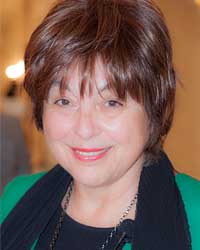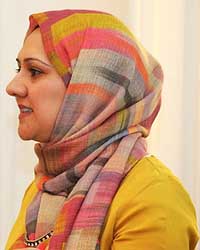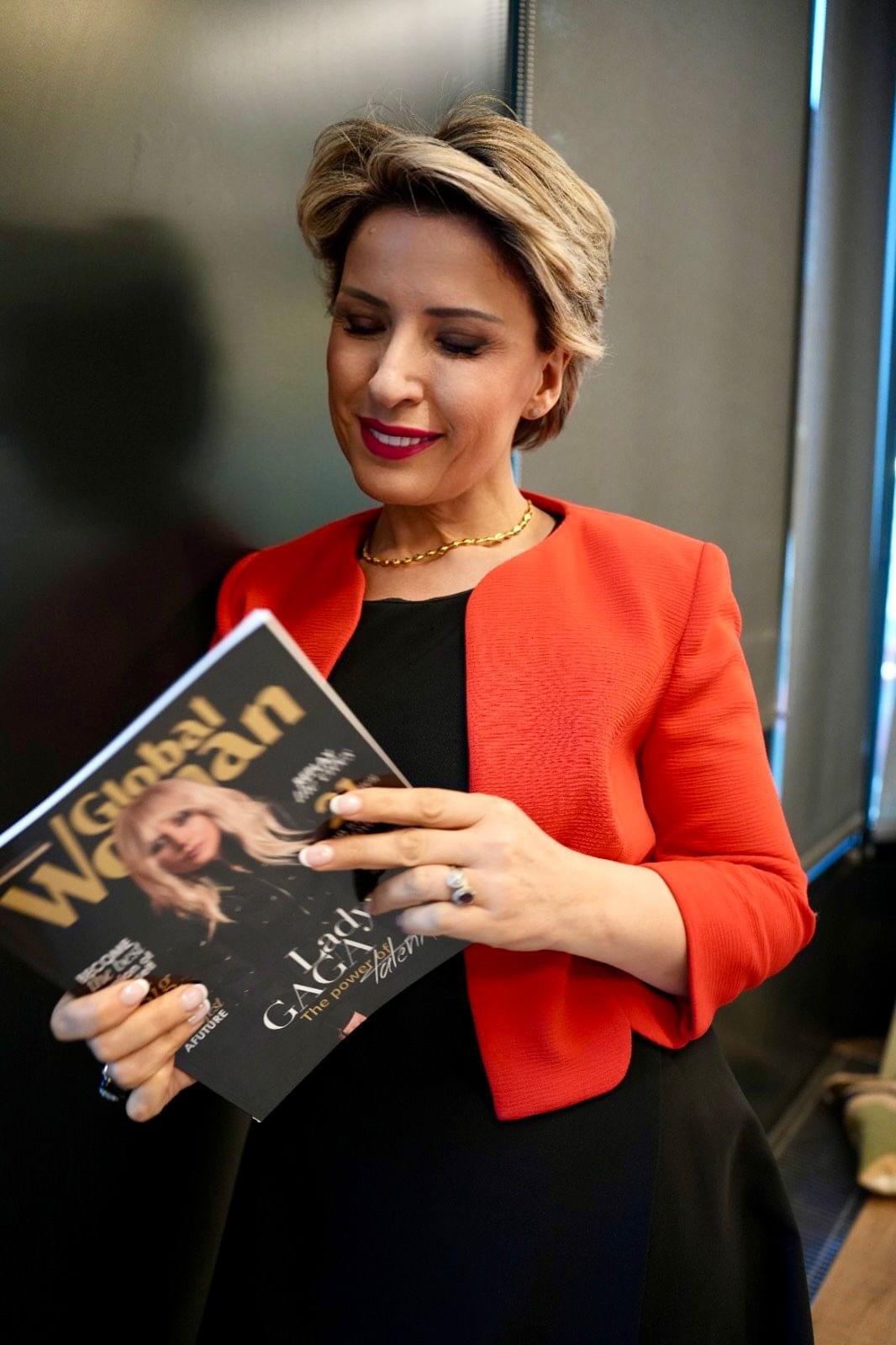What do these three women have in common?
Regardless of all these cultural issues, traditional restrictions and influences, they believe that one can achieve everything that puts one puts his or her mind into. We just have to believe in ourselves, and go for it. If you really want something, and have the will to persist, you can get it! Read what they share in common and what makes them unique.
Ferhan from Turkey, Huda from Iraq and Lily from Ghana share their thoughts with us.
 Ferhan thinks that her whole life has been a blend of the eastern and western cultures, as she goes back and forth between these different worlds, sometimes pondering about who she really is and where she really is from. She hold three passports, has lived in four countries and seven cities in her life, and travelled to over thirty countries for work or for pleasure. For the last seventeen years, she has been living and working always in-between two cities, first between London and Paris and now between London and Istanbul, with both local and international clients and partners. At heart she is Turkish, but in her professional life, she has the western work ethic, since most of her professional life took place in USA and Europe.
Ferhan thinks that her whole life has been a blend of the eastern and western cultures, as she goes back and forth between these different worlds, sometimes pondering about who she really is and where she really is from. She hold three passports, has lived in four countries and seven cities in her life, and travelled to over thirty countries for work or for pleasure. For the last seventeen years, she has been living and working always in-between two cities, first between London and Paris and now between London and Istanbul, with both local and international clients and partners. At heart she is Turkish, but in her professional life, she has the western work ethic, since most of her professional life took place in USA and Europe.
 Lily was a student when she decided to emigrate, and for her migration has been a chance of better opportunities and an improved lifestyle. Her sense of adventure kicked in once it was clear that London was going to be her home for the foreseeable future. You see, it wasn’t supposed to be a permanent move. There was always talk of going back to the motherland of Ghana, certainly at the beginning, but as time went on the pull of London was much stronger, as her network of like-minded people grew and fuelled her need to learn more outside of the classroom.
Lily was a student when she decided to emigrate, and for her migration has been a chance of better opportunities and an improved lifestyle. Her sense of adventure kicked in once it was clear that London was going to be her home for the foreseeable future. You see, it wasn’t supposed to be a permanent move. There was always talk of going back to the motherland of Ghana, certainly at the beginning, but as time went on the pull of London was much stronger, as her network of like-minded people grew and fuelled her need to learn more outside of the classroom.
 Huda was born in Iraq and left at the age of two due to the repressive political environment at the time. She has lived in a number Middle Eastern countries and came to settle in the UK at the age of 11. Her interests lie in the areas of Middle East politics, Islam, international relations and gender issues. Huda’s success illustrates her work-ethic, passion and drive to be a role model for not just the women in her community, but everyone who knows and works with her. Although she said that she has always had a keen interest in women’s issues and gender politics, it never crossed Huda’s mind to work on front line issues, or at a grass roots level with women who suffer because of their gender and the system they live in.
Huda was born in Iraq and left at the age of two due to the repressive political environment at the time. She has lived in a number Middle Eastern countries and came to settle in the UK at the age of 11. Her interests lie in the areas of Middle East politics, Islam, international relations and gender issues. Huda’s success illustrates her work-ethic, passion and drive to be a role model for not just the women in her community, but everyone who knows and works with her. Although she said that she has always had a keen interest in women’s issues and gender politics, it never crossed Huda’s mind to work on front line issues, or at a grass roots level with women who suffer because of their gender and the system they live in.
Regardless of all these cultural issues, traditional restrictions and influences, they believe that one can achieve everything that one puts his or her mind into. We just have to believe in ourselves, and go for it. If you really want something, and have the will to persist, you can get it! Read what they share in common and what makes them different.
Huda: What has your mother taught you about “being a woman”?
My mother has been a shining example of strength, endurance and has been fighting against the odds since her childhood. She was the first girl in her family to go to school, college, university and go on to have a career as a head teacher after graduating. Before her, women in her family and social circle did not go to school but had only informal, home-based Qur’anic and Islamic education.
With the support of her father she studied hard despite being her mother’s only support and carer at home and caring for her bothers and one sister. She went on to marry my father and take part in political activism against the now de-funked Baa’thist regime of Saddam Hussain in Iraq, where she was persecuted and sentenced to death by hanging in absentia. As a result of this my parents had to continually flee from where they had settled and make a new start in new foreign lands, at least four times in their lives. Imagine having to do that with two and then three young children who also happen to be girls. I know that my dad relied on my mother’s unflinching support to have the strength to continuously start again. My mum taught me that “being a woman” means being a fighter and going after what you want without apology or shame.
Ferhan: My mother was a teacher. She nurtured my creativity. She instilled in me a passion for working hard. My mother also showed me the importance of being generous with people and sharing. She was one of the most affectionate and generous people I have known. She was not a free woman in her own life though. She was largely dependent on my father and was ruled by him, for her livelihood and her life choices, even though she was educated and worked as a teacher earlier on.
Seeing her frustrations in life, made me want to be ever more independent, both financially and in how I lived. Free as a bird, with no family commitments or local traditions weighing me down, free to go anywhere, as I wanted. So when I graduated from college, I went far away from Istanbul directly to Honolulu Hawaii, which started my own independent journey of life. This initially made my mother sad, but I think she understood me.
Lily: A woman is nurturing, supportive whose strength of character binds families and communities. She’s a leader who brings hope and her main job is to teach and inspire the next generation of leaders.
What is the model that you learned about being a woman from your culture/society?
Huda: That is a tough one as I moved through a number of cultures and society but the one thing that was constant was my faith. My faith has been my source of energy. My personal connection to the divine is my driving force. Iraqi women are often described as being the equivalent of ten men because of the suffering that they had to endure in recent history as a result of colonialism, various nationalist movements and three wars in recent history. This has resulted in a lot of pain and tragedy for them and their families, and has forced them to be self-sufficient providers for their families.
In the ancient history of Iraq we have a number of prominent and well known female Goddesses or divine figures such as Ishtar and Inanna who are Akkadian, Assyrian and Babylonian Goddesses of fertility, love, war, and sex. In the Islamic faith we have a number of strong female figures that provide leadership and guidance for both men and women. In the Qur’an the female ruler Balqees, the Queen of Sheebah, who ruled over the ancient lands of Yemen. The Virgin Mary is also a central figure in the Quran and is the only female to have a whole chapter dedicated to her and named after her. She is also described as the most Favoured Woman over all women of the world.
The Prophet Mohammed’s first love and wife, Khadijah, was a very prominent business woman in seventh century Arabia and she was his employer, his senior in age and the one who asked for his hand in marriage. She was the first female believer in Islam also. We have other examples of the Prophet’s daughter and his granddaughters as clear examples of equality, knowledge and leadership in the very early Muslim community in Arabia, which then, unfortunately as it is now, a very patriarchal society.
Ferhan: One of the reasons I went away from the Turkish culture in my early age of 23, is because I wanted to build a more independent life than the Turkish women I saw around me. In those days, even the most educated women of my age were either under the control of their fathers or their husbands.
The current model in the Turkish culture is that a professional woman has to be a super woman, a good housewife, a good mother and a hard working professional bringing home some of the money. While this is commendable, it puts a lot of unnecessary stress on the woman. If you are married, you should be equal, in both earning your life but also in doing housework and taking care of the kids. This is how we lived with my American husband, whom I met in Hawaii, all our lives. We were equal in both earning money and in raising our son, and in determining our own career choices.
Lily: Growing up, I was surrounded and raised by Matriarchs with a lot of clout within the community. Equality was the norm rather than the exception as I went to a co-educational boarding school. Remember, I grew up in post-colonial Ghana, filled with hope and vigour towards a just and free society — better education and opportunities for all. As the first sub-Saharan country to gain independence from the British, a lot was riding on its fortunes and still does today.
The two great outcomes from that era which I’m most proud of are:
- Girls and boys go to school together
- Christians and Muslims live peacefully side-by-side
What is the role model you learned from your father?
Huda: My father has taught me that the pursuit of knowledge and working for the cause of serving others less fortunate than you is of paramount importance. He also taught me that I can do anything if I put my mind to it and that he expects nothing but the best from me.
Ferhan: My father tried very hard to give me the best education he could by sending me to private American schools in Turkey. He instilled upon me from the age of twelve that I should be an independent woman, that I should not be at the mercy of a man or a husband, and that I should at all times keep my financial independence.
However, ironically, he controlled my mom quite a bit, and he tried to control my personal freedoms as well. He had a hard time digesting the freedoms that my American education gave me. So I did not choose to marry a Turkish man, but an American. I was also lucky that my husband always supported my career, and always enabled me to achieve whatever ambition I had.
Lily: There is always a way out of no-way! I remember that quote so clearly, as if it was just yesterday. My dad was outspoken with a BIG personality who called a spade a spade – he was all about standing tall, talking straight and letting the chips fall where they may. This approach to life in general didn’t always sit well with his job as a diplomat. What was never in doubt was where he stood on any given matter. I guess I can say that the apple doesn’t fall too far from the tree and I too have learned to believe that there is always a way out of no-way!
What is the main characteristic about your culture on how women are treated?
Huda: I think it’s a difficult question to answer as cultures are always changing and evolving. They do not necessary follow a straight path towards improvement but may go round in cyclical patterns where there is greater experiences of equality, liberty and freedom of both men and women. Various values and beliefs exercises different consequences on women. In the first fifty years of the dawn of Islam in Arabia, it was a revolutionary period for women where they were afforded a level of equality, autonomy and political freedoms that were not seen in the West until the 1970s but unfortunately, in my opinion, things have not kept up to that ideal with the passing of time.
Colonialism both by Eastern and Western forces, the industrial revolution, the period of independence, war, social and religious reform have meant a variety of experiences for women that range from the absolutely unjust and discriminatory to the most liberal and equitable. If we are talking about the current global focus and scrutiny of Islam and Muslims we see very different and opposing views of women, such as the treatment of women in Afghanistan and Syria by extremist groups. Also regimes in contrast to the enshrinement of women’s equality and human rights according to international standards as in the case of Islamic law in Morocco but both examples claim that they are acting the true Islamic values and Shariah law.
Ferhan: There are differences in the Eastern, more traditional and religious areas versus, Western, more European cities. But traditionally, in Anatolia, women are still expected to stay home with their kids and be subservient to their husbands. The growth of professional women overall is not as much as we want to see, either. The percentage of women board directors and CEOs in corporations are less than desirable, although this number is increasing. In rural areas, women are a lot less educated. There are five million illiterate women in Turkey today. There are a lot of women groups who want to educate and help the careers of rural young women. This is a big subject, and a very current and important issue, that needs deep solutions and government support.
Lily: Women in Ghana wear many hats and are often quite powerful in their own right. Some are entrepreneurs, some are scholars, some are professionals and some are all of the above! Independent and politically active — yet the dichotomy is that married women are given an elevated status within the echelons of its society. So many aspire to that and lose their identity and voices over time. I doubt though it’s limited to Ghana, it’s the global ‘ideal’ that mutes the voices of many otherwise articulate women. That said, things are changing for the better.





